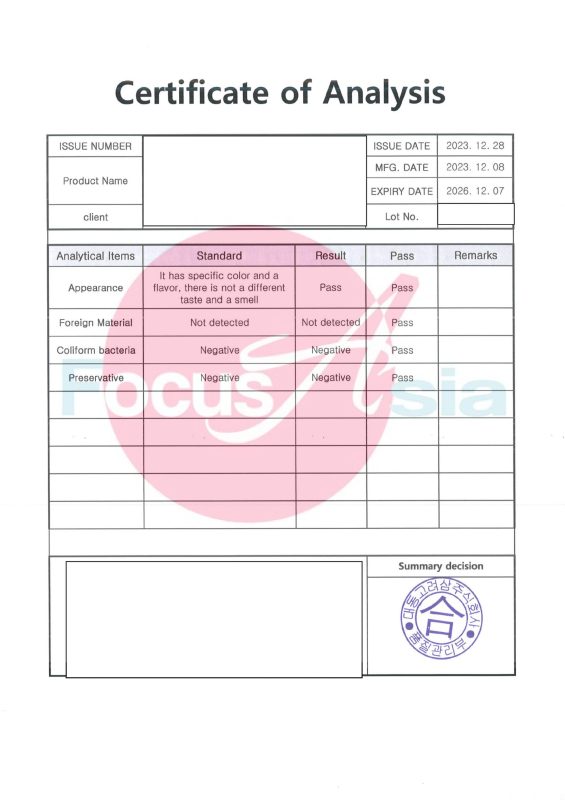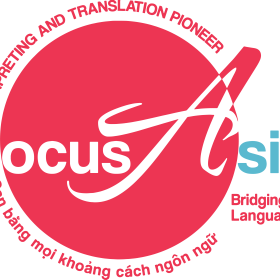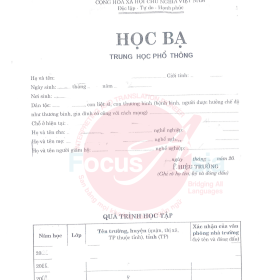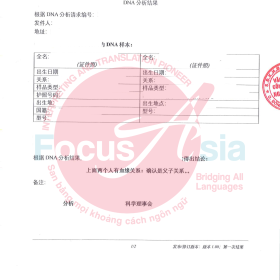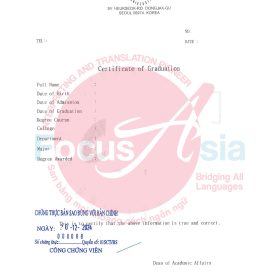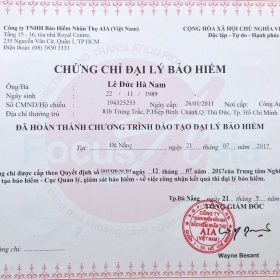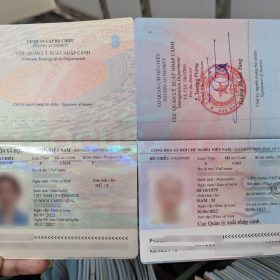Unlock Global Markets: Professional Translation and Notarization of Korean Certificates of Analysis by Asia Translation and Interpretation
In an increasingly interconnected global marketplace, accurate communication and compliance with regulatory standards are vital for businesses seeking to expand their reach. Asia Translation and Interpretation is proud to offer specialized services for the translation and notarization of Korean Certificates of Analysis (COA). In this SEO essay, we will delve into the significance of certified translations and notarizations, the role of the Korean COA in international trade, and how Asia Translation and Interpretation can assist businesses in overcoming language barriers and ensuring legal compliance.
What is the Korean Certificate of Analysis?
The Korean Certificate of Analysis (COA) refers to an official document issued in South Korea that provides comprehensive information about the quality, composition, and testing results of a particular product or substance. The COA serves as a form of verification and assurance that the product meets the specified standards and regulatory requirements set by Korean authorities.
The Korean COA is commonly used in various industries, including pharmaceuticals, food and beverages, cosmetics, chemicals, and agricultural products. It plays a crucial role in ensuring consumer safety, product quality control, and compliance with local regulations.
The contents of a Korean COA typically include the following information:
1. Product Details: The COA specifies the name, brand, and specific identification or batch number of the product being analyzed.
2. Manufacturer Information: It provides details about the company or entity responsible for manufacturing or distributing the product, including their name, address, and contact information.
3. Testing Methodology: The COA outlines the specific testing methods employed to evaluate the product. This may include information about the instruments, procedures, and standards used during the analysis.
4. Analytical Results: The COA presents the test results obtained from the analysis. It includes data on the product’s composition, purity, potency, contaminants, and other relevant parameters. These results are typically compared against established regulatory limits or specifications.
5. Reference Standards: The COA may mention the reference standards or guidelines used to determine the acceptability of the product. This ensures that the analysis follows recognized industry standards and regulatory requirements.
6. Certifying Authority: The COA indicates the authority or laboratory responsible for conducting the analysis and issuing the certificate. This information adds credibility and confirms the reliability of the provided results.
The Korean COA is essential for regulatory compliance, quality control, and consumer protection. It is often required when importing or exporting products to or from South Korea, during product registration processes, or when demonstrating compliance with Korean standards to local authorities or business partners.
It is important to note that the specific requirements and formats of the Korean COA may vary depending on the industry, product type, and applicable regulations. Manufacturers, exporters, and importers should consult with regulatory experts or seek guidance from the appropriate Korean authorities to ensure compliance with the specific requirements of their respective industries.

Why it is important to translate and notarize Korean Certificate of Analysis?
Translating and notarizing a Korean Certificate of Analysis (COA) is important when it needs to be used or presented in a foreign country for various purposes. Here are a few reasons why translation and notarization of the COA are significant:
1. Legal Compliance: When dealing with international markets or regulatory bodies, it is often necessary to provide translations of legal documents, such as the COA, in the official language(s) of the foreign country. Translating the COA ensures that the content is accurately understood by the authorities, regulatory agencies, or business partners in the target country, facilitating legal compliance.
2. Language Barrier: Language differences can pose a significant barrier when conducting international business or complying with foreign regulations. Translating the COA helps overcome this barrier by providing an accurate translation of the document into the language understood by the intended recipients. It ensures effective communication and comprehension of the product’s quality, composition, and testing results.
3. Regulatory Approval: Many countries have their own regulatory standards and requirements for product importation and distribution. Translating and notarizing the COA can help meet the specific linguistic and legal requirements of the foreign regulatory bodies. This increases the chances of obtaining regulatory approval, demonstrating compliance with local regulations, and facilitating market access for the product.
4. Consumer Confidence: Translating the COA allows foreign consumers or business partners to understand the product’s quality, safety, and compliance with regulatory standards. It enhances transparency and builds trust, as stakeholders can review the translated COA to make informed decisions about product purchases, collaborations, or regulatory compliance.
5. Legal Authenticity: Notarization of the translated COA adds an extra layer of authentication and credibility to the document. Notarization involves the verification and certification of the translation by a licensed notary public or a designated authority. This process confirms that the translation is accurate, complete, and a true representation of the original COA, enhancing the document’s legal authenticity.
It is important to note that the specific requirements for translation and notarization may vary depending on the country and industry where the COA will be used. It is advisable to consult with reputable translation and notarization services or legal professionals who have expertise in the relevant jurisdiction to ensure compliance with the specific requirements and procedures.
Asia Translation and Interpretation’s translation and notarization steps
Asia Translation and Interpretation follows a comprehensive and meticulous process for Korean Certificate of Analysis translation and notarization services. Our step-by-step approach ensures accuracy, reliability, and compliance with legal requirements. Here are the key steps we undertake:
1. Initial Consultation:
Our team initiates the process by conducting an initial consultation with the client to understand their specific requirements, including the purpose of the translation, any specific instructions, and the desired timeline. This consultation helps us gather all the necessary information and tailor our services to meet the client’s needs.
2. Document Collection and Verification:
Once engaged, we request the client to provide a scanned or digital copy of the Korean Certificate of Analysis to be translated and notarized. Our team verifies the authenticity and completeness of the document to ensure accurate translation and compliance with legal standards.
3. Language Pair Assignment:
We assign the translation task to our professional translators who are native speakers of both Korean and Vietnamese. Our linguists possess expertise in legal terminology, ensuring precise translations that maintain the original document’s meaning and intent.
4. Translation Process:
Our translators meticulously translate the Korean Certificate of Analysis into Vietnamese, paying attention to details, formatting, and cultural nuances. We ensure accurate rendering of personal information, such as name, address, and identification numbers, while adhering to Vietnamese language and legal requirements.
5. Editing and Proofreading:
To maintain the highest quality standards, our translations undergo a thorough editing and proofreading process. Experienced proofreaders review the translated document, cross-checking it against the original Korean Certificate of Analysis to ensure accuracy, consistency, and clarity.
6. Notarization Preparation:
Upon completion of the translation, we prepare the document for notarization. This includes formatting the translation according to the notary’s requirements, attaching the original Korean Certificate of Analysis , and any additional supporting documents as needed.
7. Notarization Process:
We work closely with authorized notaries who specialize in certifying translated documents. Our team submits the translated document, along with the original Korean Certificate of Analysis and any other required documents, to the notary for official notarization. The notary verifies the accuracy and authenticity of the translation, applying their seal and signature to certify its legal validity.
8. Delivery:
After the notarization process is complete, we securely package the translated and notarized Korean Certificate of Analysis and deliver it to the client. We offer various delivery options, including electronic copies for convenience or physical delivery via courier services for original documents.
Asia Translation and Interpretation’s translation and notarization steps ensure that our clients receive accurate, reliable, and legally compliant translations of their Korean Certificate of Analysis s in Vietnamese. We prioritize precision, confidentiality, and professionalism throughout the entire process, providing exceptional language services tailored to our clients’ needs.

Why Choose Asia Translation and Interpretation?
Asia Translation and Interpretation: Your Trusted Language Partner:
Asia Translation and Interpretation is a leading language solutions provider that understands the complexities involved in translating and notarizing Korean Certificates of Analysis. Here’s why we are your ideal language partner:
-
Expert Translators: Our team consists of native-speaking translators with expertise in both Korean and the target language. They possess in-depth knowledge of industry-specific terminology and are skilled in accurately translating COAs while preserving their original meaning.
-
Notarization Services: We offer comprehensive notarization services, ensuring that translated COAs are authenticated and comply with the legal requirements of the target country. Our licensed notaries verify the accuracy and completeness of the translation, instilling confidence in the document’s authenticity.
-
Confidentiality and Accuracy: We prioritize the confidentiality of sensitive information contained within COAs. Asia Translation and Interpretation adheres to strict data protection protocols to safeguard your proprietary data. Our quality assurance processes guarantee accurate and error-free translations, ensuring the integrity of the COA.
- Timely Delivery: We understand the time-sensitive nature of international trade. Our streamlined workflow and dedicated project managers ensure that translated and notarized COAs are delivered promptly, meeting your deadlines and facilitating smooth business operations.
Expanding into international markets requires meticulous attention to detail, including accurate translation and notarization of Korean Certificates of Analysis. Asia Translation and Interpretation is your trusted language partner, providing professional translation and notarization services for COAs. With our expertise, you can overcome language barriers, ensure compliance with foreign regulations, and confidently engage with global business partners and regulatory bodies. Contact Asia Translation and Interpretation today to unlock new opportunities and establish your presence in the global marketplace.









